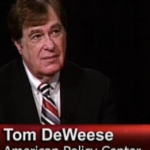R-CALF United Stockgrowers of America
“Fighting for the U.S. ! Cattle Producer”
For Immediate Release Contact: R-CALF USA CEO Bill Bullard
December 18, 2011 Phone: 406-252-2516; r-calfusa@r-calfusa.com
8 Days of Opposition to USDA’s Proposed Mandatory Animal Identification Rule: Part V of VIII-Part Series
Billings, Mont. – As promised, R-CALF USA has launched an 8-day series of news releases to explain in detail many of the reasons our members vehemently oppose the U.S. Department of Agriculture (USDA) Animal and Plant Health Inspection Service’s (APHIS’) proposed mandatory animal identification rule titled, Traceability for Livestock Moving Interstate (proposed rule).
With this effort, R-CALF USA hopes to bring to light many of the dangerous aspects associated with the proposed rule that R-CALF USA described in its voluminous comments submitted to APHIS on Dec. 9, 2011. Click here to view the entire 41-page comment submitted by R-CALF USA, which includes all of the group’s citations to specific references that are removed from this news release to save space.
Part V: Marketplace Premiums for Traceable Cattle Will Evaporate Under the Proposed Rule
C. APHIS Grossly Understates the Economic Cost of the Proposed Rule that Will be Borne by U.S. Cattle Producers
- 3. APHIS’s cost estimates completely overlook and ignore the market value of the information intrinsic to an individually identified animal and the effect of APHIS’ proposed rule will be to steal that value from U.S. cattle producers and gift it to the U.S. meatpacking industry.
APHIS asserts the primary benefit of the proposed rule would be to minimize losses and quickly reestablish foreign and domestic markets. See 76 Fed. Reg. 50097, col. 3. But, APHIS completely overlooks and ignores the fact that foreign markets already have assigned a market value to information that would enable traceability to the herd of origin. Primary export markets such as Japan, South Korea, and Hong Kong already require beef exported to them to be from animals that are traceable. Japan requires beef to be derived from cattle t! hat are individually identified and traceable back to ranch records (EXHIBIT 16). South Korea requires beef to be derived from cattle that are of U.S. origin or fed in the U.S. for at least 100 days if they originate from Mexico or Canada, which requirement necessitates individual animal identification (EXHIBIT 17). Hong Kong requires beef from cattle that are traceable to the last location and to the herd of origin in the event of a BSE outbreak (EXHIBIT 18).
The fact that the above mentioned export markets each require some form of traceability of cattle from which the exported beef is derived indicates they each have assigned a market value for traceability and are willing to pay for that additional value in the price they pay for U.S. beef. This market driven incentive to provide traceability as a product attribute for foreign markets has already been embraced by many R-CALF USA members. Anecdotal information from R-CALF USA members indicates that the marketplace has assigned economic premiums ranging from $30 to $60 per head for producers who are voluntarily providing traceable livestock for use in the beef export market.
Dr. Kris Ringwall’s 2007 testimony to the U.S. ITC succinctly explained that traceability has a market value:
Steve Holcombe, founder and chief executive officer of Pardalis, Inc. (which is a third-party data storage company that values and treats data the same as money) noted: “The challenge is to effectuate regulations that are inclusive of small producers, and that recognize that there now are two distinct products being produced along agricultural supply chains today: (1) the traditional livestock product (the calf) and (2) an informational product that describes the ‘pedigree’ of the traditional product.”
This is important to understand. Today’s producer markets a calf but also markets the information about that calf, a process that is still struggling in the pens and alleyways of the cattle business. The free marketplace determines calf value, but the value of the information associated with the calf has not been determined. But one point is becoming very clear; the actual information contains the keys to unlock the various doors needed to enter the more complex market place, not only domestically but also internationally (EXHIBIT 12, p. 1).
The proposed rule is void of any economic analysis regarding the potential loss of all or part of the economic premiums that export-oriented cattle producers are presently receiving by choosing to add information to their cattle that describes the pedigree of their cattle. The proposed rule would interfere with the free market system by forcing all cattle producers to pay the cost of providing traceability and then gifting any and all of the market value associated with traceable cattle directly to the nation’s meatpackers, which, of course, are in the business of selling beef, not cattle. APHIS’ failure to analyze the loss of economic premiums, specifically the portion of the economic premium assigned to basic traceability, is fatal as the effect of its proposed rule would be to transfer wealth from U.S! . cattle producers to the purveyors of the commodity beef – the U.S. meatpacking industry.
Based on APHIS’ estimate that 3.1 million calves were officially identified in 2010 (see supporting document, at 8), and assuming that those cattle are receiving market-driven premiums in the range of $30 to $60 per head, the proposed rule would financially damage those producers in a range of between $93 million and $186 million. This would be in addition to the proposed rule’s costs addressed in Section C. 2. supra. This loss would be realized by U.S. cattle producers because, once the rule is implemented, those producers who already officially identify their cattle will no longer be able to differentiate their cattle based on all or part of the valuable “pedigree” information they are now “selling” in the marketplace.
R-CALF USA is concerned that APHIS intends to persuade export countries to abandon, in whole or in part, their current requirements for cattle traceability as specified in the USDA Export Verification (EV) program as soon as APHIS can demonstrate that all or most cattle in the U.S. are traceable under APHIS’ mandatory identification scheme. When this inevitability occurs, U.S. cattle producers will be deprived of the income discussed above that they can now earn by voluntarily participating in currently available EV programs.
R-CALF USA’s concern is not mere conjecture. In the June 3, 2005, Declaration of John R. Clifford, D.V.M., then deputy Administrator, APHIS, Veterinary Services, which included exhibits, Dr. Clifford stated that he did not believe the voluntary Export Verification Program was needed:
The program, called the Beef Export Verification program, will set forth policies, procedures and requirements for an independent process verification of participants.
It is a voluntary, user-fee service available to suppliers of beef and beef products derived from cattle slaughtered in the United States.
The USDA Agricultural Marketing Service will conduct process verification audits of suppliers, program documentation and procedures with regard to the Beef Export Verification program requirements.
Details of this program are being shared with the industry and will be posted on the USDA website starting today. It will be operational on or before September 1st.
As I said before, we do not believe such a program is necessary (EXHIBIT 1, pp. 2,3; EXHIBIT 19). (Emphasis added.)
Based on Dr. Clifford’s representation that APHIS was opposed to the very inception of the Beef Export Verification program, it is R-CALF USA’s belief that it is more likely than not that Dr. Clifford and APHIS will work aggressively to dismantle this voluntary, market-driven program as soon as the proposed rule is implemented.
If R-CALF USA’s concern materializes, APHIS’ proposed rule would effectively steal the market value associated with “pedigree” information that enables livestock traceability (estimated at between $93 million and $186 million in 2010 alone) away from U.S. cattle producers and gift it to the U.S. meatpacking industry, even though it is the cattle producers who will continually bear the cost of providing such valuable market information.
As explained above, APHIS’ proposed rule directly interferes with the United States’ free market system and if the losses estimated for 2010 were calculated on the basis of the cattle industry’s lost future income potential, those losses would compound astronomically and result in an acceleration of the already contracting U.S. cattle industry. For this reason, the proposed rule must be immediately withdrawn.
R-CALF USA encourages readers to share this information with their neighbors, state animal health officials, and their members of Congress.
# # #
R-CALF USA (Ranchers-Cattlemen Action Legal Fund, United Stockgrowers of America) is a national, nonprofit organization dedicated to ensuring the continued profitability and viability of the U.S. cattle industry. For more information, visit www.r-calfusa.com or, call 406-252-2516.



